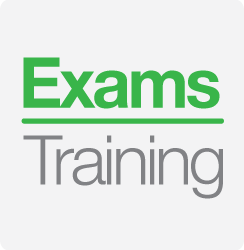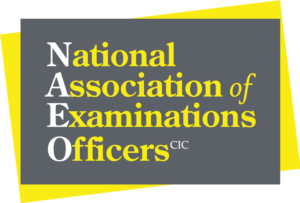The Invigilator Digital Accreditation (IDA) is annually updated on an academic year basis and access to the accreditation is included within your centre membership to The Exams Office
What the accreditation offers
An online assessment designed to assess and measure the knowledge and understanding of trained invigilators (and where relevant, facilitators of access arrangements) of what is expected of them when supervising and supporting candidates under examination conditions in accordance with the JCQ Instructions for conducting examinations (ICE) document.
The sections within the IDA do not address centre-specific requirements and processes. Use the IDA as a means of further assessing your invigilators and supplement with a session to cover centre-specific arrangements and processes (and to provide your invigilators with the opportunity to ask questions about or clarify areas of JCQ regulations and requirements).
What the IDA covers
The IDA is purely an assessment with questions covering content (where relevant to the role of the invigilator) from the JCQ Instructions for conducting examinations (ICE) document as follows:
- Invigilation arrangements
- Preparing for the examination – At the beginning of the examination
- During the examination – At the end of, and after, the examination
- Invigilating and facilitating access arrangements – Instructions for conducting on-screen tests
See CONTENT OF THE ASSESSMENT MATERIAL
The unit does not cover the specialist facilitator roles: Communication Professional, Language Modifier.
(Note where a facilitator is supporting a candidate in an exam room on a 1:1 basis and (where permitted by the regulations) also acting as the invigilator, as well as facilitator trained the facilitator must also be invigilator trained)
Assessment
The IDA is an ‘open-book’ assessment where invigilators are permitted to refer to the ICE document when taking each section. Questions are selected randomly from a bank of questions.
The IDA can only be certificated when a Pass (full marks) has been achieved across all sections.
As the IDA is updated on an academic year basis to reflect any regulation changes/updates in ICE relevant to the role, invigilators should complete the accreditation on an annual basis to confirm an up-to-date knowledge of current regulations.
Certification
Upon successful completion, invigilators will be awarded their Certificate and Assessment Details, which lists the assessment sections and associated marks, for the current academic year.
Note: Completion and certification of the annually updated IDA must take place by the end of July each year as it will be de-activated from then until it is re-activated early in the new academic year (subject to the issue of all relevant updated JCQ publications) after review and update.
The Exams Office takes no responsibility for any outcomes in centres as a result of the information provided on our website, The Exams Office Hub or within our documentation. It is the responsibility of centres to apply this information as they deem necessary within their own centre. You should always contact/refer to the relevant awarding body for the most accurate and up-to-date information regarding their qualifications.




